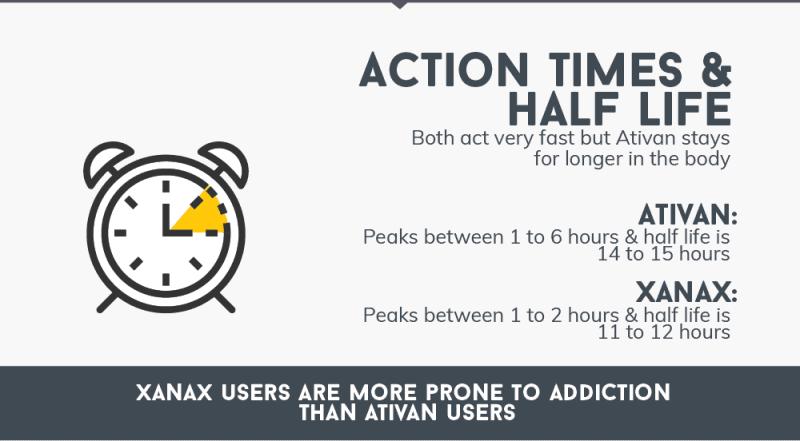What are the adverse effects of Ativan?
Ativan (generic name: lorazepam) is a prescription medication in the benzodiazepine class, often used to treat anxiety, insomnia, and certain seizure disorders. While it can be effective, it also carries the risk of side effects — some mild and short-term, others more serious.
Common Adverse Effects
These often occur when you first start taking Ativan or after dose changes:
Drowsiness or sedation
Dizziness or lightheadedness
Weakness or fatigue
Unsteadiness or loss of coordination
Blurred vision
Memory problems or difficulty concentrating
Less Common but Possible Effects
Headache
Nausea or upset stomach
Changes in appetite
Constipation
Low blood pressure
Depressed mood
Serious Adverse Effects
These require immediate medical attention:
Severe allergic reaction (rash, itching, swelling, difficulty breathing)
Severe confusion or hallucinations
Extreme drowsiness leading to difficulty waking
Slowed or troubled breathing
Dependence and withdrawal symptoms (if stopped suddenly)
Seizures (especially after abrupt discontinuation in long-term users)
Long-Term Risks
With prolonged or high-dose use:
Tolerance (need for higher doses to get the same effect)
Physical dependence
Withdrawal symptoms if the medication is stopped suddenly
Cognitive impairment (memory and thinking difficulties)
Increased risk of falls in older adults
Safety Tips
Use Ativan only as prescribed and for the shortest duration possible.
Avoid alcohol and other sedatives while on Ativan.
Never stop suddenly — always taper under a doctor’s guidance.
What Are the Common Side Effects of Ativan?
Ativan (lorazepam) is a benzodiazepine medication that's frequently prescribed for anxiety and insomnia. Its side effects are often linked to its effects as a central nervous system depressant.
The most common side effects include:
Drowsiness and Fatigue: This is one of the most frequent side effects, particularly when you first start taking the medication. You might feel sleepy during the day and have trouble concentrating.
Dizziness and Lightheadedness: Ativan can affect your balance and coordination, increasing the risk of falls, especially in older adults.
Weakness and Muscle Fatigue: You might feel physically weak or experience a lack of strength.
Memory Problems: Some people may have difficulty remembering recent events.
Gastrointestinal Issues: These can include nausea, constipation, or diarrhea.
These effects often lessen as your body adjusts to the medication, but if they persist or get worse, you should inform your doctor.
Can Ativan Cause Dependency or Withdrawal?
Yes, Ativan has the potential to cause both physical and psychological dependency. The risk of dependency increases with long-term or high-dose use. When your body becomes dependent on the medication, abruptly stopping it or significantly reducing the dose can lead to withdrawal symptoms.
Withdrawal symptoms can include:
Rebound Anxiety and Insomnia: Your original symptoms may return with greater intensity than before.
Physical Discomfort: This can manifest as sweating, a rapid heartbeat, muscle aches, tremors, and headaches.
Emotional and Psychological Symptoms: You might experience restlessness, irritability, mood swings, or panic attacks.
Severe Symptoms: In rare cases, severe withdrawal can lead to hallucinations, seizures, or psychosis.
To prevent withdrawal, doctors typically recommend gradually tapering the dose rather than stopping the medication suddenly.
What Are Rare but Serious Adverse Reactions?
While uncommon, Ativan can cause serious adverse reactions that require immediate medical attention. Seek emergency care if you experience any of the following:
Respiratory Depression: Your breathing becomes slow, shallow, or difficult. This risk is higher when Ativan is combined with other central nervous system depressants like alcohol or opioids.
Allergic Reaction: Signs include a rash, hives, swelling of the face, lips, or throat, and difficulty breathing.
Behavioral Changes: Some people may experience unusual excitability, hostility, aggression, hallucinations, or suicidal thoughts. These are known as "paradoxical reactions."
Liver Problems: In very rare cases, Ativan can cause liver inflammation or jaundice, which is a yellowing of the skin or eyes.
How Does Ativan Affect the Brain and Body?
Ativan is a benzodiazepine that works by enhancing the effects of a neurotransmitter in your brain called gamma-aminobutyric acid (GABA). GABA is the brain's primary inhibitory neurotransmitter, meaning it helps to calm down neural activity.
When Ativan binds to GABA receptors, it amplifies GABA's effects, which in turn:
Reduces Brain Activity: This creates a calming, anti-anxiety effect.
Relaxes Muscles: It has a muscle-relaxant effect.
Induces Sleep: It helps you fall asleep and stay asleep.
Provides Anticonvulsant Effects: It can be used to treat certain types of seizures.
Essentially, Ativan "slows down" the brain's neural activity to create a state of calm and relaxation.
What Should You Avoid While Taking Ativan?
To ensure your safety and the medication's effectiveness, it's crucial to follow your doctor's instructions and be aware of certain precautions:
Avoid Alcohol: Both alcohol and Ativan are central nervous system depressants. Combining them significantly enhances their sedative effects, which can lead to severe drowsiness, respiratory depression, coma, or even death.
Avoid Driving or Operating Heavy Machinery: Because Ativan can cause drowsiness, dizziness, and a lack of concentration, you should avoid activities that require high levels of alertness.
Do Not Stop Abruptly or Change Your Dose: Always follow your doctor's prescribed dosage. Stopping suddenly can trigger withdrawal, while increasing the dose can heighten the risk of side effects and dependency.
Inform Your Doctor of All Medications You're Taking: Certain drugs, such as opioid painkillers, antidepressants, and antihistamines, can interact with Ativan and increase the risk of side effects. Be sure your doctor is aware of all prescription, over-the-counter, and supplementary medications you're using.
Use with Caution if Pregnant or Breastfeeding: Ativan may cause harm to an unborn baby or nursing infant. Discuss the risks and benefits with your doctor before using the medication if you are pregnant or breastfeeding.











